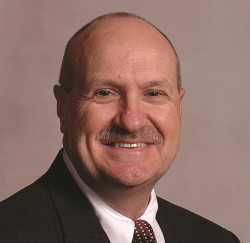Florida Citrus Mutual Focused On Fighting HLB

Like in most years, Florida Citrus Mutual’s plate was full this year with a policy driven agenda that continues to recognize the critical importance of fighting HLB. Mike Sparks, executive vice president of the organization, says 2013 will be just as busy and funding will remain a critical mission at Mutual, along with lobbying lawmakers on other important policy issues like immigration.
Every Penny Counts
According to Sparks, Mutual’s work on finding any additional sources of dollars played a key role in obtaining research appropriations of $2 million from the state legislature, $11 million from USDA, and $570,000 from FDACS. Sparks says fundraising would not be possible without active lobbying in Washington, D.C., and Tallahassee. Mutual sponsored “fly-ins” of its leadership to both capitals this year. “Gov. Rick Scott continues to get acquainted with the state’s citrus industry, becoming a regular attendee at our annual conference in Bonita Springs and the annual crop estimate breakfast,” he says. Mutual’s state and federal political action committees raised more than $100,000 in funds aimed at state and federal lawmakers in 2012, which is particularly important in an election season. “As you can see, it has been a hectic, yet productive year,” says Sparks. “It always is, but that is what we do and will continue to do on behalf of our members. I want to thank our board and all our membership for their support.”
2013 Checklist
Sparks says maintaining vital funding for research into citrus pests and diseases will remain a top priority in the coming year. Mutual will tap into the expertise of its staff and its voluntary board to lobby for funds and for help in other critical areas including environmental regulation and immigration reform. “We will continue to defend Florida citrus growers from unfair trade practices such as dumping and circumventing on NAFTA duties,” he says. “We will work tirelessly to protect the OJ tariff in 2013.”
In a previous contribution to Florida Grower in his “FCM Mutual Musings” column, Sparks noted the downside of a reduced tariff: “Because 90% of the world’s orange juice is manufactured in two locations (Florida and Brazil), this makes orange juice one of the most concentrated commodities in the world from a production standpoint. Eliminating the tariff would give Brazil a monopoly on the world orange juice market. Not only would this be disastrous for Florida’s economy, but consumers would most likely experience soaring retail prices. Proponents of free trade seek to increase competition, decrease cost to the consumer, and encourage additional players to enter the market. The lack of a tariff would create a cartel-like marketplace that promotes just the opposite.”










